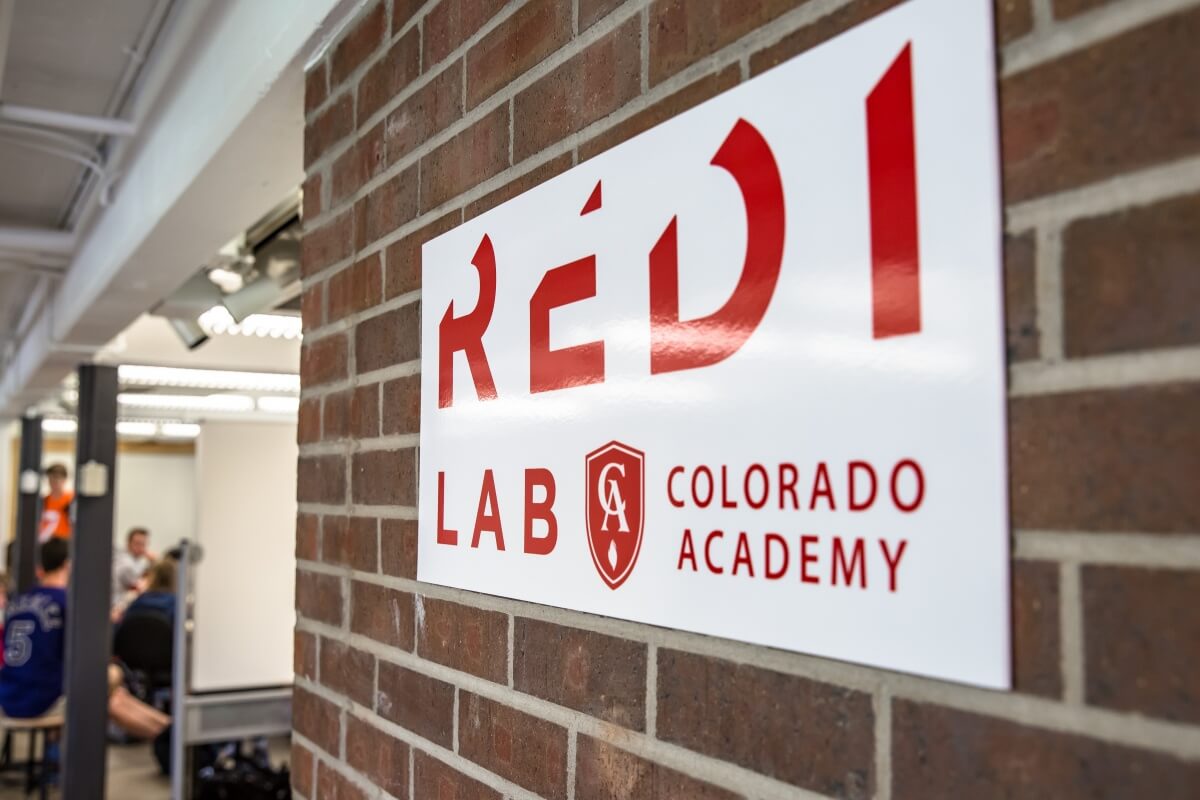The REDI Lab at CA is a one trimester “school-within-a-school” experience. REDI is an acronym for the cornerstones of the program: Research, Entrepreneurship, Design, and Inquiry. The program is highly personalized and collaborative and uses self-directed learning as an opportunity for high school juniors to grow as problem solvers who are better prepared for college and work. These are excerpts from Spring 2018 as students begin their REDI Lab learning.
Ellie Bain
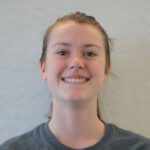 For my REDI Lab project, I’m studying art history and attempting to replicate some famous paintings. I think that learning the techniques of different artists and the styles of different eras are like different languages, and by replicating paintings, you can learn these languages. Eventually, when you have learned enough languages, you can incorporate all of these different languages into your own work.
For my REDI Lab project, I’m studying art history and attempting to replicate some famous paintings. I think that learning the techniques of different artists and the styles of different eras are like different languages, and by replicating paintings, you can learn these languages. Eventually, when you have learned enough languages, you can incorporate all of these different languages into your own work.
Rather than simply learning art history, by actually replicating the famous paintings of different eras, I’m physically painting how those famous artists would have painted. I think that this will help me to gain insights and understanding that I would not get otherwise.
Gretchen Carpenter
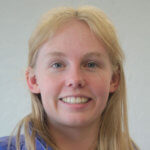 I joined the REDI lab with a very specific idea of what I wanted to do: redesign the sit ski. I had picked this idea because I saw what I thought was a need and was excited to get working. I expected the project to be organized, specific, and massive.
I joined the REDI lab with a very specific idea of what I wanted to do: redesign the sit ski. I had picked this idea because I saw what I thought was a need and was excited to get working. I expected the project to be organized, specific, and massive.
Since then, my project has changed multiple times. What started off as a project-oriented around science, design, and innovation morphed into something related to community, language, and cultures, then went in multiple other directions, and eventually landed back to a design aspect combined with the learning process of creating a business model. Throughout the process of perpetual change, I have learned a lot about myself and acquired life skills that were not part of the everyday academic school schedule.
Jane Doherty
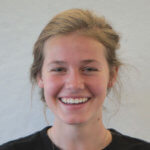 Too often I feel myself recycling the lines “Hi, how are you? Good, how are you?” The response never matters much. The next time someone asks me that question, I will pause and think and actually fill the air with something a notch higher than a worthless, “I am good thanks.” Similarly, the next time someone asks me how is REDI Lab, I am going to use it as an opportunity to practice genuine communicating/putting to words what may be hard to understand or say concisely.
Too often I feel myself recycling the lines “Hi, how are you? Good, how are you?” The response never matters much. The next time someone asks me that question, I will pause and think and actually fill the air with something a notch higher than a worthless, “I am good thanks.” Similarly, the next time someone asks me how is REDI Lab, I am going to use it as an opportunity to practice genuine communicating/putting to words what may be hard to understand or say concisely.
In an effort to practice brevity and genuine communication, I will reduce this blog entry to one word: Dépaysement. (This French word is closely related to “disorientation;” however, at its core, it defines the outsider feeling that you get when you travel to new places. It articulates how, when one’s physical surroundings are unfamiliar, one’s personal feelings and behaviors start to feel unfamiliar as well. Dépaysement is about behaving in unknown ways and not being able to interpret or understand them)
Adam Dorsheimer
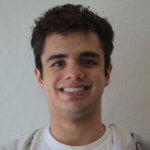 I’m finding myself in a weird position of loving the idea of the story I am planning to write for my REDI Lab project, yet not loving what I have written thus far. I suspect this is not unusual, but I don’t recall this ever being an issue for me in the past.
I’m finding myself in a weird position of loving the idea of the story I am planning to write for my REDI Lab project, yet not loving what I have written thus far. I suspect this is not unusual, but I don’t recall this ever being an issue for me in the past.
The challenge lies in my fear that this piece will go nowhere. Without having a clear idea of the plot, I have no faith that this piece will be remotely interesting or really do anything at all. I’m shutting out my self-doubt and trying not to think about this, for I feel that acknowledging this fear could be counterproductive at the moment. If I can just keep it at bay until I get to point where I’m revising, I’ll be content. In the meantime, I’ll do my best to navigate through this new space.
Emmett Ela
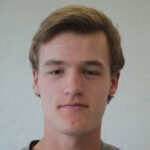 With the high school baseball season starting up in conjunction with the REDI Lab program, I often find myself making connections between playing Baseball and the learning process. In Baseball, there will always be opportunities to either make excuses or accept your mistakes and learn from them. When you mess up, you can blame your glove, or a bad hop, or the weather, or the coaches, but in the end, the only thing you can control is yourself and the actions that you make.
With the high school baseball season starting up in conjunction with the REDI Lab program, I often find myself making connections between playing Baseball and the learning process. In Baseball, there will always be opportunities to either make excuses or accept your mistakes and learn from them. When you mess up, you can blame your glove, or a bad hop, or the weather, or the coaches, but in the end, the only thing you can control is yourself and the actions that you make.
I find myself using the same mindset that will help me on the baseball field during my learning process in REDI Lab. One of the main philosophies behind the REDI Lab program is that no matter how your project turns out, you have to own it and own the effort that you put into it. I think this is one of the most valuable parts of the program, because after school, that is how the world works. You have to own your successes and own your failures in order to gain respect as a professional no matter what field you work in.
Ari Fierer
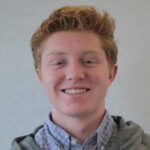 Coming into the REDI Lab, I thought I had my project planned out. I wanted to start a woodworking business where I would make certain select items, and then sell them on a website I would create. However, as my thinking started to shift and as I started reflecting on why I really wanted to do this, my project’s complexion started to change.
Coming into the REDI Lab, I thought I had my project planned out. I wanted to start a woodworking business where I would make certain select items, and then sell them on a website I would create. However, as my thinking started to shift and as I started reflecting on why I really wanted to do this, my project’s complexion started to change.
I decided to design my business around custom products created for specific spaces. Not only do the restrictions of a customer who wants a certain custom product limit the vast possibilities for design, it also strengthens the creativity necessary to design something unique and spectacular. As a result, I am creating my own business, Fierer Furniture | Creative Solutions, with the idea to design custom furniture for spaces whose potential is not maximized.
Alyvia Gonzales
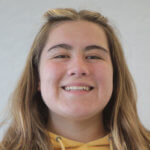 Initially, I wanted my project to focus on body image and beauty standards. I was very interested in these topics and how they affect lives. Instead, I decided to focus my project around Polycystic ovary syndrome, PCOS, because I was passionate about the issue and have a desire to learn about it.
Initially, I wanted my project to focus on body image and beauty standards. I was very interested in these topics and how they affect lives. Instead, I decided to focus my project around Polycystic ovary syndrome, PCOS, because I was passionate about the issue and have a desire to learn about it.
Right now, I’m working on creating a website as a resource for women with PCOS. I also want to create awareness, because while PCOS is the most common hormonal disorder for women of childbearing age, very few women know about it. I want to create a valuable resource for women and create a project that can help women who are struggling with PCOS.
Thomas Ho
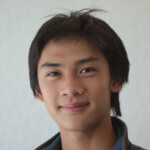 The REDI Lab is awesome not because it provides something insanely crazy but something crazy simple—space to be me.
The REDI Lab is awesome not because it provides something insanely crazy but something crazy simple—space to be me.
I use the space that it provides to explore the developments of technology in society—not because I hope to change the world with some gravity-defying invention or world-changing thesis. I simply enjoy learning about where the world is going. I get to experience a more self-aligned learning. My experiences, while less social, are more fulfilling because I get to experience how I would operate outside of the school’s limitations.
Aly Gallagher
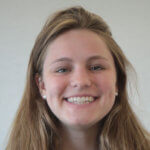 Starting with a neighborhood swim club at age six, I have been involved with swimming for my whole life. My REDI Lab project was developed out of a realization I had regarding how deeply the sport of swimming lacks racial diversity. After doing research and talking to experts, I have learned that the lack of diversity in the sport is a result of a disparity in access to swimming education and resources.
Starting with a neighborhood swim club at age six, I have been involved with swimming for my whole life. My REDI Lab project was developed out of a realization I had regarding how deeply the sport of swimming lacks racial diversity. After doing research and talking to experts, I have learned that the lack of diversity in the sport is a result of a disparity in access to swimming education and resources.
I want to address misconceptions around what it means to be safe in water, and not only teach the kids formal swim lessons, but also emotional lessons about failure and resilience. I am working with local recreation centers and volunteers to give the kids an opportunity to learn formal swim lessons, and allow the act of swimming to become a staple in their lives, and by this hopefully grow water safety and the competitive sport.
Gracie Buyers
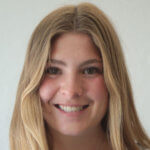 Gracie Buyers produced a visual blog to launch her REDI Lab project.
Gracie Buyers produced a visual blog to launch her REDI Lab project. 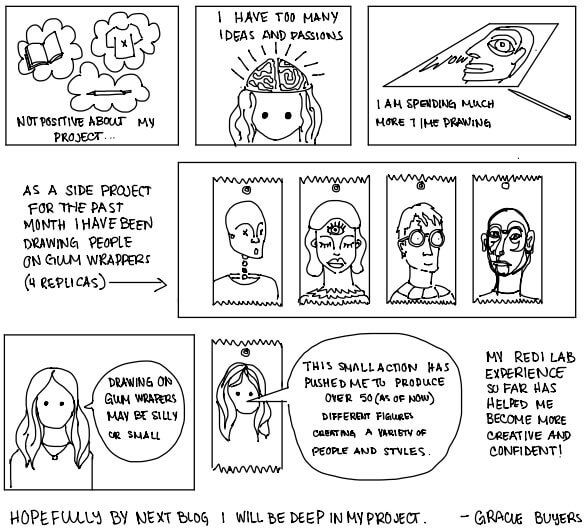
Sloane Murphy
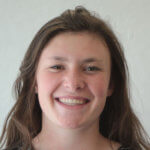 Driving to school every day, seeing the smog over Denver, experiencing irregular weather patterns throughout the year, noticing less snowfall during ski season, and hearing about other signs of climate change, left me feeling hopeless and frustrated. When the REDI Lab was first introduced to me during my sophomore year, I knew it was something I wanted to be a part of, particularly because I thought it could be the perfect platform for me to accomplish my goal of doing something about the daunting topic of climate change.
Driving to school every day, seeing the smog over Denver, experiencing irregular weather patterns throughout the year, noticing less snowfall during ski season, and hearing about other signs of climate change, left me feeling hopeless and frustrated. When the REDI Lab was first introduced to me during my sophomore year, I knew it was something I wanted to be a part of, particularly because I thought it could be the perfect platform for me to accomplish my goal of doing something about the daunting topic of climate change.
Through my research and inquiry, I soon realized that while the majority of my peers recognize that climate change exists, they are largely uneducated about the complexities of the issue. At this point, I found a new focus for my project—creating curriculum about climate change might be the most effective way to create large scale change.
Makayla Sileo
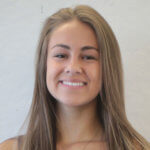 Life is good. It is a simple realization, but I believe a very critical one. Just as it is so easy to see beauty, it is also so easy to duck your head and march on. But where does this take you if not down the same path as the rest of the world? With this, I have come to realize the value of seeing life. I have tried to embrace the power of being. I have realized that I am not a guest on this earth just to follow the echelon of people. I have learned I want to see differently and feel every emotion and hear the beautiful stories that people have to tell and make art and be kind and live each moment boldly while embracing the beautiful chaos that is this. If I produce nothing else from REDI lab, I am content with the fruit of learning.
Life is good. It is a simple realization, but I believe a very critical one. Just as it is so easy to see beauty, it is also so easy to duck your head and march on. But where does this take you if not down the same path as the rest of the world? With this, I have come to realize the value of seeing life. I have tried to embrace the power of being. I have realized that I am not a guest on this earth just to follow the echelon of people. I have learned I want to see differently and feel every emotion and hear the beautiful stories that people have to tell and make art and be kind and live each moment boldly while embracing the beautiful chaos that is this. If I produce nothing else from REDI lab, I am content with the fruit of learning.
Kayla Wolins
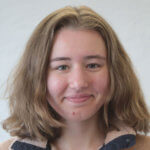 For my REDI Lab project I have created a list of questions I want to ask teachers, so I can better understand school from their perspective. I have a unique perspective on this topic as a student in high school, and I want to see if I can help bridge the gap between teachers and students in high school.
For my REDI Lab project I have created a list of questions I want to ask teachers, so I can better understand school from their perspective. I have a unique perspective on this topic as a student in high school, and I want to see if I can help bridge the gap between teachers and students in high school.
